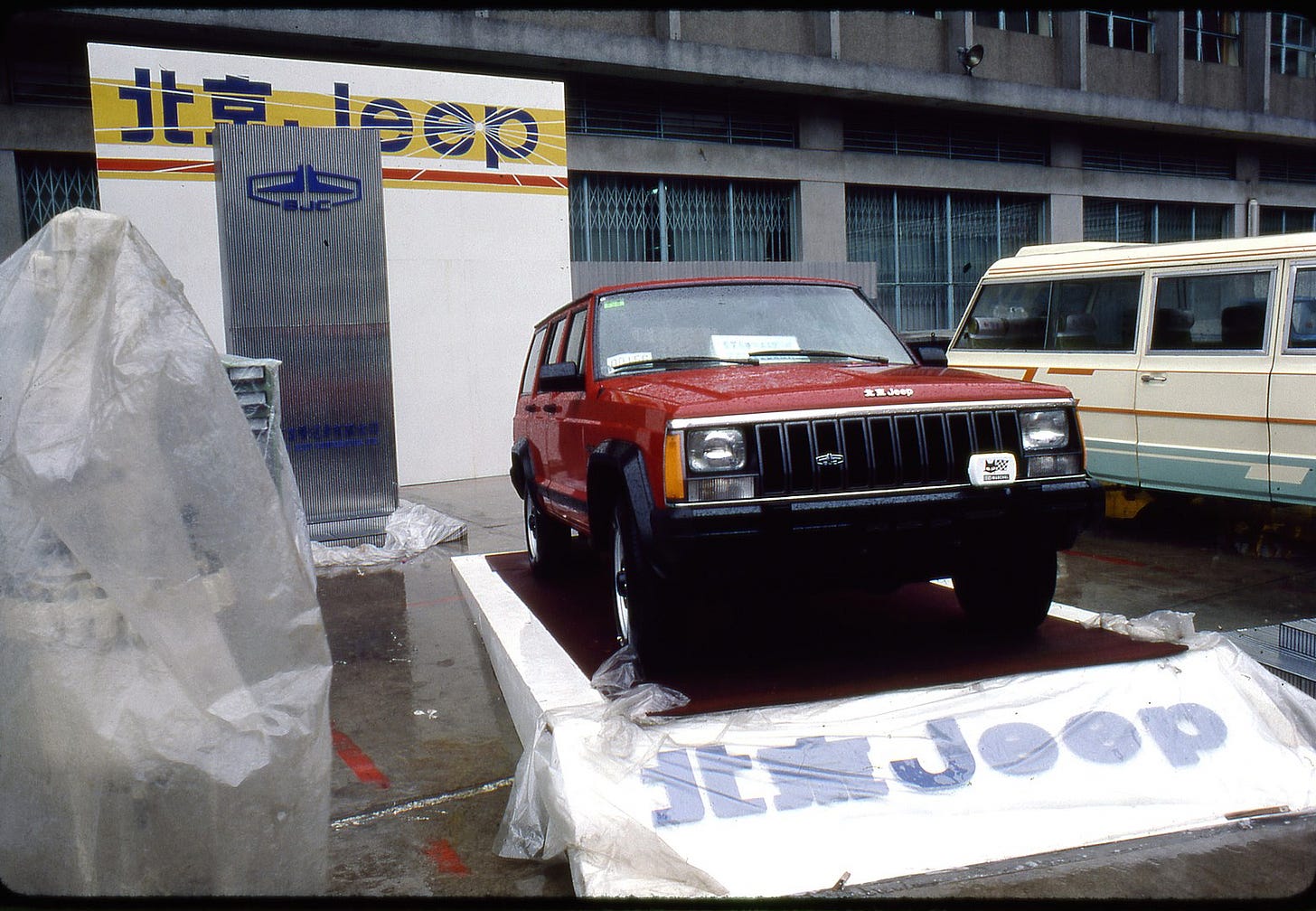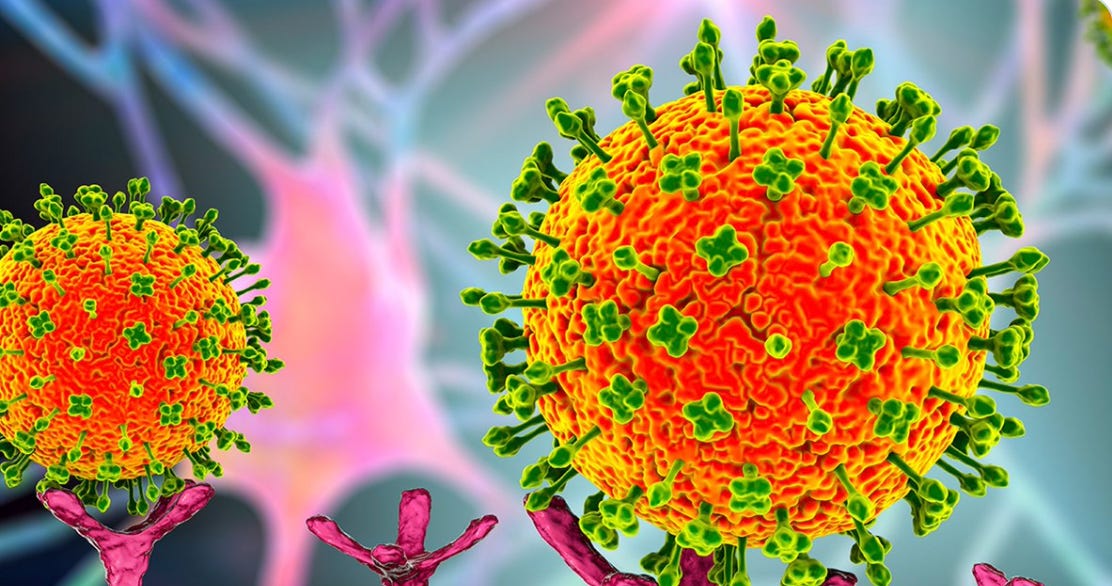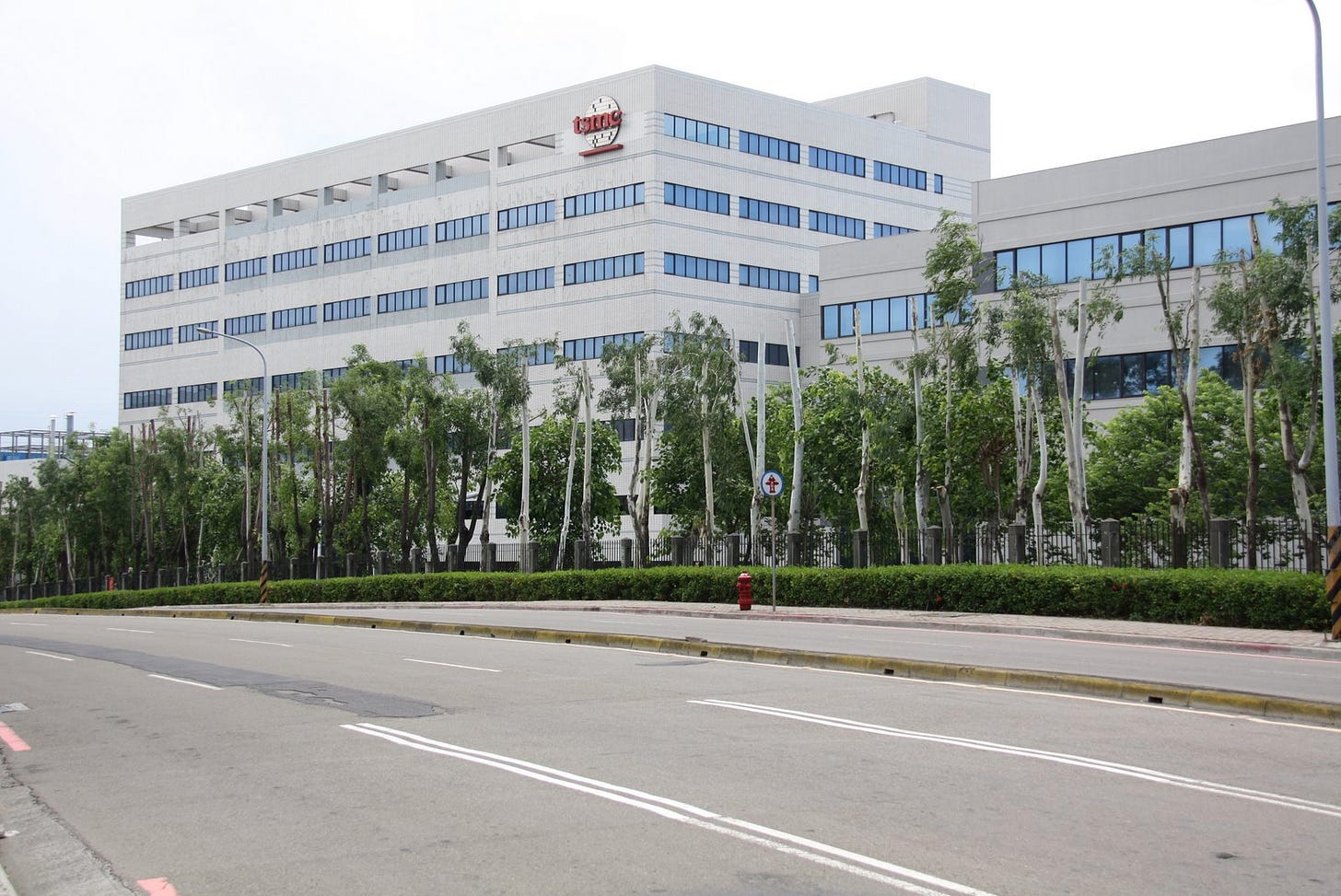Is this MAD?
Has mutually assured destruction shifted 'Far East' – and is there a normalizing solution to the present 'tensions' in the Taiwan Strait?
Taiwan President Tsai Ing-wen addresses military pilots in 2019. Photo: 軍聞社, WikiCommons.
The answers are, Yes … and No.
Yes, it’s most definitely MAD.
No, because nobody can back down.
An invasion of Taiwan is mutually assured destruction – and that’s silver-lining on all the post-MAD economic privations and overarching civilizational challenges involved in the “rebuilding.”
In addition, all this “one China” stuff was never normal to begin with.
Whatever “normal” was, we’re not going back to it. We’re entering a period in which none of the contenders’ goals are achievable and the demarkation lines of their disputes – the reasons for which are forgotten – are now fluid, like the seas that are supposed to define their angry lines of noisy offense.
China cannot win Taiwan over with warm, family vibes.
Taiwan cannot proclaim independence – only de-facto sovereignty.
It’s likely that the US cannot retain freedom of navigation operations (FONOPS) in the South China Sea and the Taiwan Strait – and control the Pacific – without a fight.
Enter Japan. It’s the world’s third largest economy and it has publicly stated that it would likely see an attack on Taiwan as an attack on its own territory.
China cannot risk a war with Taiwan, the US and Japan – and level the semiconductor sector in the process. In fact, that we’re even discussing this is mad.
The Wall Street Journal (paywall) reports, in an unusual war-gaming admission, that Taiwan and the US could prevail under assault from the PRC.
The 7-hour war game, simulating three weeks of combat, illustrated what a daunting task it would be for China to launch an amphibious invasion across the 100-mile Taiwan Strait, even with its military advances of recent years.
‘Probably the biggest [takeaway] is, under most assumptions, the United States and Taiwan can conduct a successful defense of the island. That’s different from many people’s impressions,’ said Mark Cancian, a senior adviser at the Center for Strategic and International Studies think tank, which hosted the game in its Washington offices.
There’s a downside.
The cost would be high: Taiwan’s economy would be shattered, and the U.S. military so battered that it would take years to rebuild, with repercussions for America’s global power.
Meanwhile, the New York Times (porous paywall) reports
Administration officials said they did not want to escalate the tense confrontation, which China maintains was provoked by last week’s visit to the island by Speaker Nancy Pelosi. But in interviews and public statements, American and Taiwanese officials made clear they now believe China used Ms. Pelosi’s visit as a pretext to step up its operations to intimidate Taiwan for months or years to come, and perhaps speed the timetable of its plans to establish control over the island’s 23 million people, much as it did in Hong Kong.
Colin H. Kahl, the under secretary of defense for policy, told reporters this week that China was trying to ‘coerce’ Taiwan and the international community.
‘And all I’ll say is we’re not going to take the bait, and it’s not going to work,’ he said.
He insisted the United States would conduct business as usual: ‘What we’ll do instead, is to continue to fly, to sail and operate wherever international law allows us to do so, and that includes in the Taiwan Strait.’
Taiwan, Japan and the US share belief structures that are incompatible with those of China’s button-downed Marxist men in suits – they only have the red pill.
Combined, the three powers – Taiwan, Japan and the US are far more powerful than China.
In short.
Beijing can shill its propaganda, but its Taiwan claims are illegitimate, highly risky for everyone involved and ultimately a threat to the world as we know it.
China needs to be told that in no uncertain terms.
The Communist Party of China would prefer we succumb to fear and break ranks. We do not have to.
White Paper advocates end to the DPP
The PRC’s new white paper on Taiwan describes a Taiwanese public brainwashed by its radical government and Western liberal forces. Photo: Cmann999, WikiCommons.
Bloomberg (porous paywall) reports that in its first white paper on Taiwan in two decades – released Wednesday – Beijing said it would not rule out force to colonize Taiwan and that it blames the ruling Democratic Progressive Party (DPP) and the US for the unification impasse.
‘The independence-seeking behavior of the DPP authorities has led to tensions across the Taiwan Strait, endangered the peace and stability of the Taiwan Strait, undermined the prospect of peaceful reunification, squeezed the space for peaceful reunification, and is a barrier for peaceful reunification that must be removed, the … [Global Times] said.
Taiwan President Tsai Ing-wen responded, “China issued its white paper ... in a wishful thinking way, disregarding the reality of the cross-strait situation.”
Over to the Global Times, translating the White Paper (pictured above):
‘The realization of complete national reunification is driven by the history and culture of the Chinese nation and determined by the momentum towards and circumstances surrounding our national rejuvenation.
’Never before have we been so close to, confident in, and capable of achieving the goal of national rejuvenation. The same is true when it comes to our goal of complete national reunification," it [the White Paper, pictured above] added.
James Palmer, writing in the Foreign Policy newsletter, says:
But it’s possible that Chinese leaders have convinced themselves Taiwan’s return might happen [without military force]: The white paper paints the Taiwanese public as deceived by the ruling Democratic Progressive Party and the West, and China’s ambassador to Australia has said the polls are misleading. Chinese officials lie about their own system so regularly, they assume that others do the same. Furthermore, the Taiwan Affairs Office also can’t be honest even internally about its own failure to woo Taiwanese to the idea of reunification, because it would expose itself.
Perhaps more likely: The CCP leadership thinks it may be able to force Taiwan to surrender through coercion and subversion rather than outright war. The CCP has spent a lot of time and money building ties with groups in Taiwan, from the once-ruling Kuomintang to organized crime … Chinese leaders also hold out for the possibility of U.S. collapse, leaving Taiwan without its main protector.
In other words, we have the US praying for at least a partial collapse of China and China praying for a complete collapse of the US – and on such fantasies quivers future world peace.
Jeep quits Beijing
Guangzhou, 1986, when business in China was the Wild East. Nearly 40 years later, Jeep has given up. Did China not get better for business? Photo: Vermontalf; WikiCommons.
Kudos to SupChina for picking this one up in a very busy news-week on China and Taiwan (two separate countries, just so you know where ChinaDiction is coming from).
Jeep has shut down its operations in China – symbolic of these decoupling times.
The decision by Jeep to exit its last China factory inevitably brings to mind the classic 1989 book by James Mann Beijing Jeep: A Case Study of American Business in China, which already a quarter century ago was warning of the often insurmountable challenges of dealing with local partners and officials.
‘From the outside, China has always seemed malleable,’ Mann, a former Los Angeles Times reporter writes. ‘From inside, it seems intractable, endlessly capable of frustrating change.’
Jeep cited government meddling as its reason for finally quitting China after being the first US company to enter the market.
“We have been seeing over the last few years more and more political interference in the world of business in China,” Carlos Tavares, CEO of multinational automotive manufacturing corporation Stellantis NV, said on Bloomberg Television on July 28, noting that there was “broken trust” in its 12-year partnership with Guangzhou Auto, following disagreements that came up after his company decided to raise its stake to 75% in the joint venture producing the Jeep Cherokee, Renegade, Compass, and Grand Commander models.
Another week, another virus
New Scientist reports that dozens of people have been infected in eastern China “by a novel virus, named Langya henipavirus (LayV), that appears to be transmitted from animals to people.”
At this point, there’s little reason to panic. So far, there’s no evidence of human-to-human transmission – although the same was claimed of SARS-CoV-2 for far too long – but the virus is out and people are getting it somehow.
Interestingly, LayV – a henipavirus typically harbored in fruit bats – has a connection with SARS-2.
LayV appears to be most closely related to Mojiang henipavirus, according to a team of researchers led by Xiao-Ai Zhang at the Beijing Institute of Microbiology and Epidemiology and Fa-Chun Jiang at the Qingdao Municipal Center for Disease Control and Prevention, both in China. In 2012, Mojiang henipavirus was linked to the onset of severe pneumonia, and eventually death, in three men working in a derelict copper mine in China.
ChinaDiction understands that many of our readers have been inconvenienced, sickened or “overwhelmed” by Covid-19. That’s terrible.
But if you’ve also been tracking SARS-2 since its sudden appearance from nowhere, the three men working in the Mojiang mine were thought by some to be the ground-zero SARS-2 cases.
We should add, we just thought the above was interesting. We’re not saying it means anything?
The Greater Sinosphere
Australia
What are these Australian-Chinese doing duking it out over greater Sinosphere politics in Sydney? Surely, you moved to Australia to get away from the politics.
Or you brought them with you?
Anyway, in completely unrelated news, Bill Bishop of Sinocism notes on the subject of Australia and its much vaunted reset with China:
The reaction to Pelosi’s visit to Taiwan and a speech by the PRC Ambassador to Canberra are two immediate reminders that for there to be any sort of a reset the Australian side will basically have to accept blame for past transgressions and agree to whatever Beijing wants.
Taiwan
The continuing death penalty embarrassment
The death penalty is a legacy cringe for modern Taiwan, but it’s difficult to put a stop to.
The DPP came to power determined to abolish it, according to presidential-level ChinaDiction sources.
It hasn’t managed to do so, despite bringing Taiwan around to gay marriage.
The Taipei Times reports:
Chiang Kuo-ching (江國慶) [his given name Guóqìng means National Day, or Double 10] denied raping and murdering a little girl until the very end, but on Aug. 13, 1997, the 21-year-old was executed by firing squad — less than a year after his arrest.
The Air Force soldier refused to eat his last meal, and sent a final letter to his father maintaining that he confessed after being tortured. The letter also contained a list of the officers who had framed him.
Chiang … grew up in New Taipei City’s Yungho District (永和), and began his military service in the Air Force in 1995. He had five months left until his discharge when on Sept. 12, 1986, a five-year-old girl surnamed Hsieh (謝) was found in a ditch on the base raped and murdered.
A military task force was quickly formed under immense pressure from the higher-ups. After initially making little progress, the investigation narrowed in on Chiang when he failed a lie detector test. He was detained and later brought into an interrogation room in a dark bunker. Over the next 37 hours, he was physically and psychologically abused, subject to round-the-clock questioning by counterintelligence officers and shown videos of the girl’s autopsy.
China’s mission under Xi Jinping may in part be to occupy Taiwan, but one of Taiwan’s primary political missions is to do away with the death penalty.
Unfortunately, the penalty still has enough public support to make it a politicly slippery issue.
But Tsai and her party know progressive Taiwanese see the death penalty as an embarrassing anachronism – at odds with the values Taiwan would like the world to equate it with.
And progressive Taiwanese are for the moment the future.
No scorched-earth policy for TSMC
TSMC, Hsinchu, the world’s semiconductor dream factory, would simply stop producing dreams in the event of an invasion by the PRC. Photo: Arusanov, WikiCommons.
ChinaDiction only brings this issue up because we’ve noticed it being bandied about in the media as if it were a genuine policy – like TSMC has officially announced, In the event of an invasion we will blow up the fabs and run away.
According to Data Center Dynamics, what the TSMC head, Mark Liu, actually said was that a Chinese invasion would render the factories inoperable.
‘Nobody can control TSMC by force,’ Mark Liu said. ‘If you take a military force or invasion, you will render TSMC's factories not operable, because this is such a sophisticated manufacturing facility.’
He clarified that this wasn't simply a matter of TSMC refusing to work with an invader, but the reality of a global supply chain and support system.
‘It depends on the real-time connection to the outside world: With Europe, with Japan, with US,’ Liu explained. ‘From materials, to chemicals, to spare parts, to engineering software diagnoses – it's everybody’s [combined] effort to make this factory operable. So, if you take it over by force, you can no longer make it operable.’
One Taipei-based tech-sector observer, when asked about TSMC’s alleged scorched-earth policy by ChinaDiction, responded, “Bullshit.”
Coda
Photo: Zoe Lee; Facebook.
This is not exactly news, but Hong Kong Free Press reports (in 2021) that it’s not just the death sentence that’s contentious in Taiwan, but also its draconian laws on cannabis use – any drug use, in fact.
Marijuana is classified as a level two drug in Taiwan, the same level as methamphetamine. Those found guilty of trafficking, manufacturing or dealing the substance face ten years to a lifetime in prison.
Says Zoe Lee, a 32-year-old lawyer and pro-cannabis advocate:
‘I was always really interested in cannabis, since I was in school. But, you know, Asian parents, Asian society would want you to be a successful commercial lawyer rather than a criminal lawyer, or a criminal, if you smoke weed here in Taiwan,” the human rights and environmental lawyer told HKFP.
Hers is quite an inspiring story, writing this from Bangkok, where ChinaDiction is based, and where we are experimenting with medical marijuana and even recreational cannabis – as dispensaries spring up like bamboo in the spring.
After spending some time in Europe, where cannabis laws are more liberal, Lee, who studied law at the National Taipei University, returned to Taiwan in 2019
Lee struck out on her own to become the country’s first “weed-only” lawyer. Her firm Lee & Partners Cannabis Law Office, dubbed “Better Call Zoe” in a nod to the popular Netflix series, only takes on clients accused of cannabis-related crimes.
ChinaDiction: Taiwan, abolish the death penalty and decriminalize weed, and be genuinely international cool.









